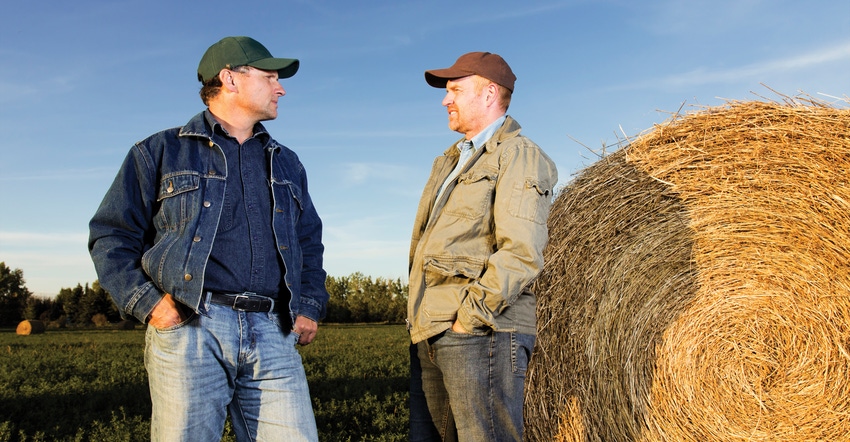
There are a whole lot of “you ought tos” and “you shoulds” in most stories about farm family communication.
You ought to meet. You should speak freely. You ought to be considerate. You should not yell.
The fact is, none of the things we’re supposed to do are terribly easy to do. It’s like when we tell our kids to be kind to each other and get along. It’s easier in theory than in practice. Sometimes, when they’re really fighting, you send them to the barn and tell them to work it out. You’re not entirely sure what transpires out there, but they come back laughing and not trying to kill each other. That’s a win.
Maybe we need to let people off the hook for how hard this all is — in farm families as in sibling relationships.
I’ve talked with farm counselor Ted Matthews at length the past few months, as we’ve covered mental health. What I know to be true is this: Ted speaks an abundance of truth. He’s spent time with farmers in crisis, and with their families dealing with the aftermath. For someone who’s never farmed a day in his life, he’s got us all pretty well pegged, along with the pressures we face as we work together.
What happens
Ted knows farms have changed so significantly in the past 25 years that it’s changed how the people who run them function with each other. Today, a vast majority of women work off the farm. That changes how we talk to each other, and how we deal with problems. A farm couple can’t look to how Mom and Dad did it, because Mom and Dad didn’t do it this way.
Ted says when he asks a man what the most important thing is on the farm that must be dealt with, he’ll talk about cheaper labor, newer equipment, more ground. When he asks a woman that, she always says they need better communication.
“So, if a woman’s No. 1 issue is communication, and it’s not even on the list for men, we have a problem,” Ted observes.
What else has he learned? Here’s a look:
1. In general, when things get rough on the farm, women talk more and men talk less. Men pull back. Women ask what can be done, what needs to be done, why did we buy new instead of used, why not wait until next year, why did we make this decision instead of that one? More questions require more conversation.
2. You don’t have to agree. There’s nothing wrong with having an opinion and disagreeing. Learn how to talk about it.
3. People tell you what they heard based on what they think is important. (Editor’s note: People read stories that way, too.) Arguments happen when people don’t hear what you think is important. Listen for more than what you want to hear.
4. Most marriage counseling happens right after harvest. If that surprises you, you don’t know farming.
5. Anger also happens at harvest. Sleep deprivation and stress occur because we think our bodies magically need less sleep during harvest. It doesn’t work that way.
6. When you justify your anger, you will explode. It’s not a matter of if — it’s when. After you explode, you’ll promise not to do it again, but it’s too late. If you keep justifying anger, you will explode again.
7. Focus on the good while working through the bad, instead of pretending or wishing it away. Look for the good; it may be buried deep, but it’s always there.
8. Everyone has an emotional and sensitivity scale. Some people think that if others think they don’t feel deeply, they can’t hurt them. That’s both true and a hard way to live.
9. Two heads are better than one, which beats the heck out of thinking you have to figure out everything on your own.
10. Work on listening skills and communication skills. Your life will be better — most days.
Ted’s parting thought as we launch into the new year: The question isn’t whether something is important. Lots of things are important. The question is whether it’s important enough. Instead of “What do we want to do?” the question needs to be “Do we want it enough?”
Whatever your farm — or family — needs this year, this question remains: Do you want it enough? It’s a question that applies to a whole lot more than just talking.
Comments? Email [email protected].
About the Author(s)
You May Also Like




